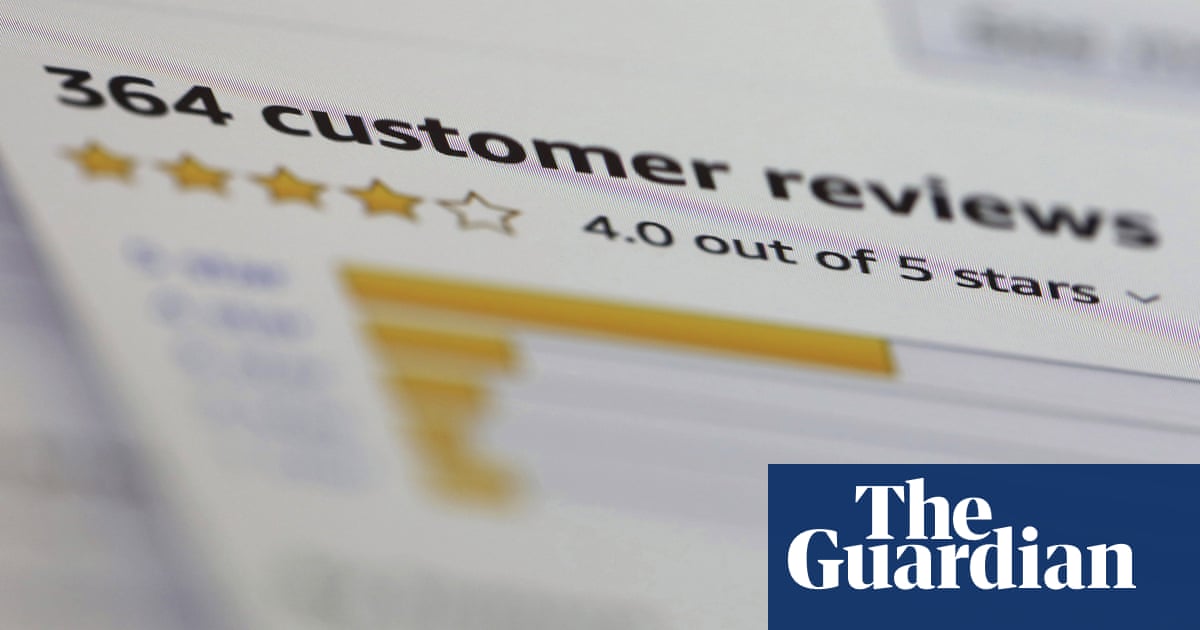Social media sites failing to curb ‘cottage industry’ of fake reviews, Amazon says - 4 minutes read

Shoppers are being deceived because social media platforms and messaging apps are not doing enough to prevent a “cottage industry of fraudsters” soliciting fake reviews, according to Amazon.
Fake reviews have become one of the most persistent scourges of online retailers, and some analysts think that about one in seven reviews in the UK are not the real deal, with blame often directed at groups that proliferate on Facebook.
Last year Amazon alone blocked 200m fake reviews. Dharmesh Mehta, head of the company’s customer trust team, said this avalanche of misinformation was harming consumers, who were being “deceived about what products they should or shouldn’t be buying”.
“Several years ago we saw the rise of what we call fake review brokers,” said Mehta, who likened it to a “cottage industry of fraudsters”, who often had hundreds of employees.
“They go to sellers and on the nefarious side say: ‘I can get you fake reviews’ – but many offer it as a marketing service and end up duping a small business who don’t know what is going on behind the scenes.
“Then they go to a bunch of consumers and say: ‘Hey, if you leave a five-star review for this product, I’ll give it to you for free or a £25 gift card.’ So, they’re effectively buying a customer’s review on one side, and on the other hand, selling a marketing or review service to a brand or manufacturer.”
The consumer group Which? recently highlighted the scale of the problem, with research showing how despite multiple interventions by the regulator, the Competition and Markets Authority (CMA), groups offering fake reviews on sites such as Amazon, Google and Trustpilot were still thriving on Facebook.
Having been accused of not doing enough to tackle fake reviews in the past, Amazon took legal action last year against more than 90 brokers who facilitated fake reviews, and sued more than 10,000 Facebook group administrators who attempted to get reviews on the platform in exchange for money or free products.
The social media company Meta, which owns Facebook, said: “Fraudulent and deceptive activity is not allowed on our platforms, including offering or trading fake reviews.
“While no enforcement is perfect, we continue to invest in new technologies and methods to protect our users from this kind of content.”
Amazon has upped the ante, highlighting its use of the latest artificial intelligence to sweep for fake reviews, and aggressive pursuit of brokers. Already this year, it has taken action against 94 brokers. However, it also wants other marketplaces to share information and for tech firms to do a better job of policing their sites.
skip past newsletter promotionSign up to Business TodayGet set for the working day – we'll point you to all the business news and analysis you need every morningPrivacy Notice: Newsletters may contain info about charities, online ads, and content funded by outside parties. For more information see our Privacy Policy. We use Google reCaptcha to protect our website and the Google Privacy Policy and Terms of Service apply.after newsletter promotionIn 2022 Amazon reported more than 23,000 groups facilitating fake reviews, with more than 46 million members and followers, to social media platforms and messaging apps.
Mehta said some platforms were not responsive enough, even in clearcut cases. “Some of these groups are advertised as ‘fake eBay reviews’ or ‘fake Amazon reviews’,” he said. “There’s some that will hide, but there’s a lot that are pretty obvious and you’d want folks to be proactively preventing that.”
Even when Amazon handed over detailed information, some sites were “very slow to move and looking for reams of evidence” before acting, Mehta said, whereas “you and I could probably look at it and go: ‘This is obvious what’s going on here.’”
The digital markets, competition and consumers bill, which is going through the UK parliament, is expected to strengthen the legal powers available to the CMA in this area.
The draft provisions propose making it illegal to post fake reviews without checking that they are genuine, or to commission someone to write a fake review or offer to submit one. However, the consumer body Which? has said the legislation should go further by explicitly making the buying, selling and hosting of fake reviews subject to criminal enforcement.
Source: The Guardian
Powered by NewsAPI.org